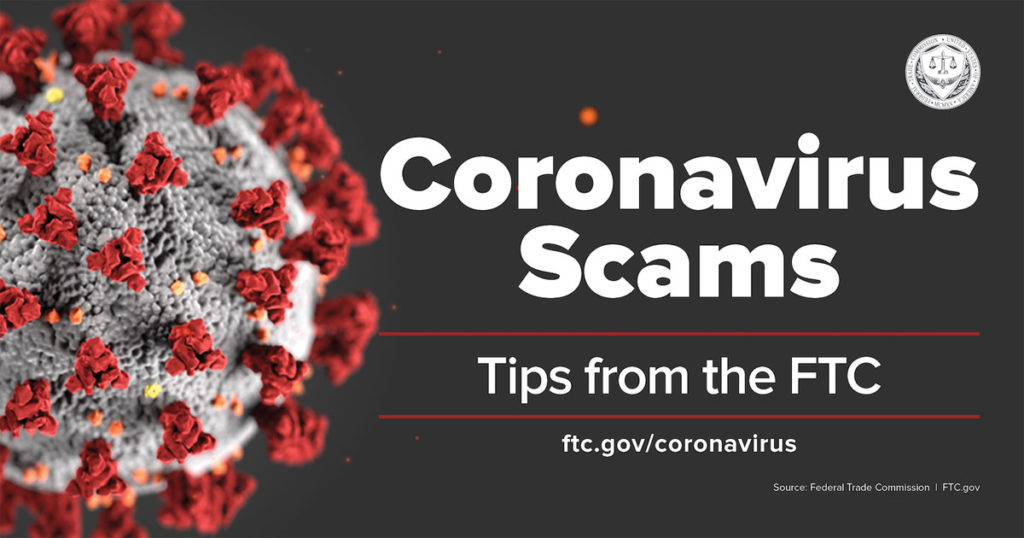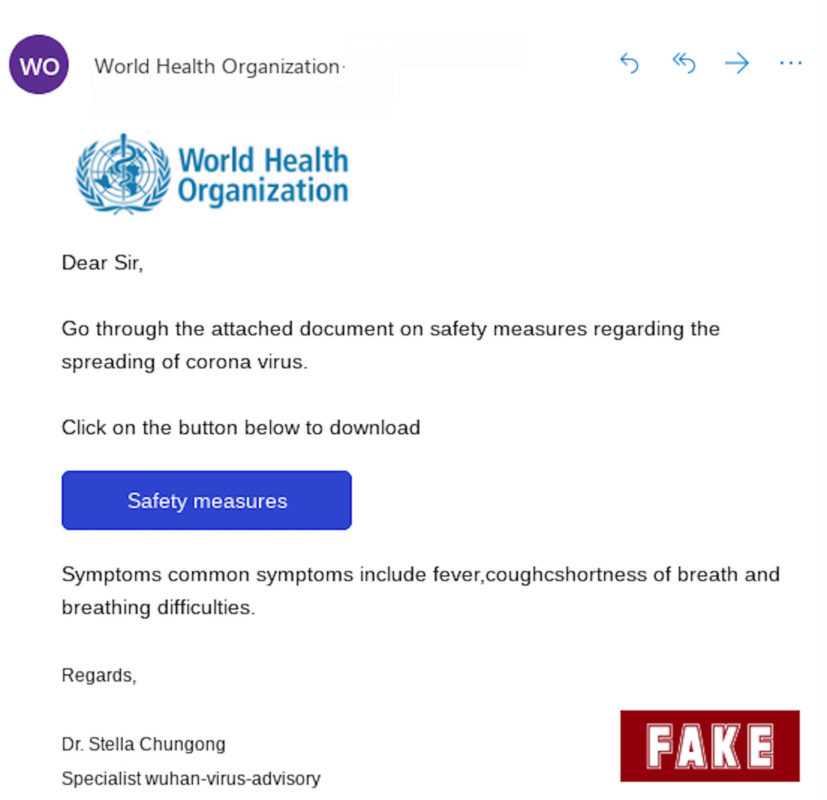Scams spike as coronavirus spreads

The coronavirus scam tips logo of the Federal Trade Commission. CONTRIBUTED
As the world comes to a virtual halt as a result of the coronavirus or COVID-19 pandemic, scammers haven’t taken a break from their unscrupulous activities. They have even intensified their efforts to ride on the notoriety of the pandemic.
Federal Trade Commission (FTC) Consumer Education Specialist Colleen Tressler wants the public to be aware that scammers are setting up websites to sell bogus products, and using fake emails, texts, and social media posts as tactics to get personal information as well as take people’s hard-earned money.
“The emails and posts may be promoting awareness and prevention tips, and fake information about cases in your neighborhood. They also may be asking you to donate to victims, offering advice on unproven treatments, or contain malicious email attachments,” warned Tressler.
Tressler gave some useful tips for avoiding these scams:
- Don’t click on links from sources you don’t know. It could download a virus onto your computer or device;
- Watch for emails claiming to be from the Centers for Disease Control and Prevention (CDC) or experts saying that have information about the virus. Only the CDC and the World Health Organization(WHO) have the most up-to-date information about the Coronavirus;.
- Ignore online offers for vaccinations, a medical breakthrough, for you won’t see them through an ad or sales pitch?
- Do your homework when it comes to donations, whether through charitiesor crowd funding sites and don’t let anyone rush you into making a donation in cash, by gift card, or by wiring money;.
- Be alert to “investment opportunities” that claim that the products or services of publicly-traded companies can prevent, detect, or cure coronavirus and that the stock of these companies will dramatically increase in value as a result.
Continuously monitoring instances of scamming, the FTC and Food and Drug Administration (FDA) have jointly issued warning letters to 7 sellers of unapproved and misbranded products that claim to treat or prevent the coronavirus.
The companies — Vital Silver, Aromatherapy Ltd., N-ergetics, GuruNanda, LLC, Vivify Holistic Clinic, Herbal Amy LLC, and The Jim Bakker Show – were required to notify the FTC within 48 hours of the specific actions they have taken to address the agency’s concerns.
Their products include teas, essential oils, and colloidal silver, which have no evidence to back up their claims as required by law. The FDA reiterates that there are no approved vaccines, drugs or investigational products currently available to treat or prevent the virus.

Fake email supposedly from the World Health Organization that carries a link to safety measures against corona virus. CONTRIBUTED
The FTC and FDA also continued to monitor social media, online marketplaces and incoming complaints to help ensure that the companies do not continue to market fraudulent products under a different name or on another website.
As a result of this close monitoring, all of the companies have made big changes to their advertising to remove unsupported claims.
Just the same, scammers have not stopped trying to victimize innocent consumers. Some of the new scams uncovered include:
- Undelivered goods of mostly in-demand products like cleaning, household, and health and medical supplies despite the orders being paid for online. Consumers are advised to check out the seller by searching online for the person or company’s name, phone number and email address, aside from taking note of words like “review,” “complaint” or “scam”;
- Fake charities take advantage of would-be victim’s generosity, using names close to those of real charities that supposedly organize events such as a major COVID-19 health event. This is to lure benefactors who are looking for ways to help. Supporters are asked to research if these charities really are holding such health events and pay safely using credit card instead of gift card or wire transfer;
- Scammers use fake emails or texts to get you to share valuable personal information like account numbers, Social Security numbers, or your login IDs and passwords so they can steal money, identity, or both. The World Health Organization has not been spared was used in this scam where phishers sent emails pretending to be from the World Health Organization (WHO) by using WHO logo;
- Illegal robocalls pitch everything from fake coronavirus treatments to work-at-home schemes. The public is advised to hang up and don’t press any numbers in case they get these suspected illegal robocalls.
The FTC also exhorts the public not to share misinformation and rumors that have not been verified.
“Before you pay someone, pass on any messages, or share your personal information, do some fact checking by contacting trusted sources. For information related to the coronavirus, visit “What the U.S. Government Is Doing” page online. There you’ll find links to federal, state and local government agencies,” Tressler strongly suggests.
The FTC can also be reached through www.ftc.gov/complaint or by calling 1-877-FTC-HELP (382-4357) to file a complaint or report any suspicious claims.

